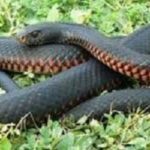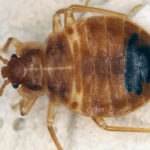
Damage from rabbits is almost always the result of their appetite for our plants. They eat flower and vegetable plants in spring and summer and the bark of fruit and ornamental trees and shrubs in the fall and winter.
There are several species of wild rabbits—most are called cottontail —who, between them, live across most of North America. Cottontails like to live at the edges of open areas. In fact, they are rarely found in dense forests or open grassland.
This love of edges means they love our suburbs. Yards, parks, playgrounds, and office parks, often with small natural buffers in between, have lots of edges between small areas of different habitats that rabbits love.
Here today, gone tomorrow is one way to describe rabbits in suburbia. Given the many predators who make meals of them, their populations can rise and fall dramatically over the course of a year. Sometimes, by doing nothing and letting nature take its own course, the homeowner sees the same result as they might from trying to “control” rabbits.
Here are some are some tips when dealing with rabbits.
- Make sure it is a rabbit. A deer will eat many of the same things rabbits eat. Twigs browsed by rabbits look neatly clipped but plants browsed by deer appear ragged and torn.
- A well-built fence is probably the most effective way to protect your plants from rabbits. Two-foot high chicken wire supported by posts every six to eight feet is strong enough to keep rabbits out. Stake the bottom securely to the ground to prevent rabbits from pushing underneath it.
- Movable fence panels can protect the garden right after the first planting, when damage is likely to be most severe, and go in the shed, barn, or garage the rest of the year.
- Commercial tree wraps or plastic tree guards can keep rabbits from nibbling bark. Cylinders of hardware cloth or poultry wire can work as well. These barriers should be as high as usual snow depth plus eighteen inches. Young trees and saplings are more vulnerable so focus on protecting them.
- If necessary, chemical repellents can be used. Chemical repellents can protect small plots and individual plants. Just be careful not to use this on plants that people will eat.
We at Southern Pest Control hope you found this information helpful. Whether it be pest control or animal removal, we at Southern Pest Control can help. We have been in the business for over 37 years serving the Gulf Coast Area.
Need Pest Control Services?
We'll call you! Leave your information below.



